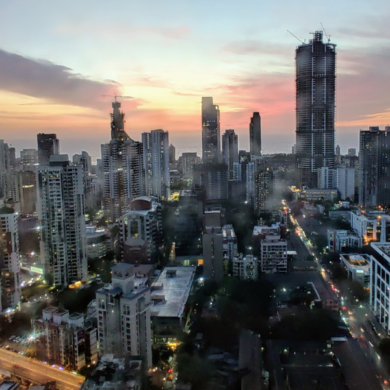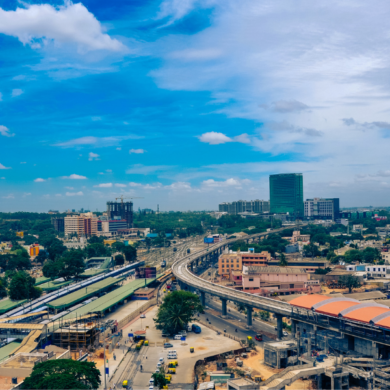
There are multiple pros and cons of under-construction property. Buying under-construction property in India offers benefits like lower prices, flexible payment plans, and customisation. However, it carries risks of delays, changing market trends, and uncertain construction timelines.
Choosing between under-construction and ready-to-move properties can be challenging for homebuyers. Understanding the pros and cons of under-construction property can help in taking an informed decision. Advantages of under-construction property are affordability, flexibility, and potential for long-term appreciation. Disadvantages of under-construction property are project delays, regulatory compliance issues, and hidden costs.
Table of Contents
What is an Under-Construction Property?
An under-construction property in India is one that is still undergoing development and has not reached the final stage of handover or possession. These properties are available for booking at various stages of construction, ranging from foundation to near completion. Here are key features that define them:
- Lower Initial Cost: Usually these offer lower entry costs compared to ready-to-move homes, making them an attractive option for both end-users and property investors.
- Phased Payment Structure: Buyers pay according to a RERA payment schedule, aligned with construction milestones. This phased payment model reduces the immediate financial burden and allows for better loan eligibility and planning.
- Customisation Options: One of the advantages of under-construction property is the scope for customisation. Buyers can choose layouts, interiors, and other design elements that suit their personal preferences.
- Investment Potential: These properties offer higher capital gains by the time of completion, making them suitable for long-term investors looking for better appreciation.
- Due Diligence Required: It is crucial for buyers to check the builder’s reputation, verify regulatory compliance, and ensure that all necessary legal approvals are in place to avoid potential pitfalls.
- Longer Wait for Possession: Unlike ready-to-move properties, the waiting period is longer, accompanied by the risk of construction delays or even incomplete projects in some cases. Therefore, buyers must be prepared for possible shifts in the possession timeline.
7 Pros of Buying Under-Construction Property in India
Investing in an under-construction property in India offers many benefits, making it an appealing choice for both homebuyers and investors.
- Lower Price & Better Returns: One of the major advantages of under-construction property is the lower entry price compared to ready-to-move homes. Early buyers often benefit from price appreciation as the project nears completion, leading to higher capital gains.
- Flexible Payment Plans: You can opt for flexible payment plans, usually structured based on the construction timeline. This phased payment model reduces the immediate financial burden, making it easier for you to manage EMI payments and plan finances effectively.
- Customisation Options: One of the advantages of under-construction property is greater flexibility in terms of layouts and interiors, providing opportunities for customisation to you’re your preferences.
- Newer Infrastructure & Modern Amenities: Since these gated communities are recently launched, they usually come equipped with the latest amenities such as swimming pools, clubhouses, gyms, multipurpose halls, and better infrastructure – enhancing the overall living experience.
- Higher Appreciation Potential: One of the key advantages of under-construction property is the higher appreciation potential compared to ready-to-move homes, especially in rapidly developing areas. This can be a great option for property investment, yielding better returns over time.
- Lower Maintenance Costs: Since the property is brand new, maintenance costs tend to be minimal during the initial years, reducing your overall expenses.
- RERA Protection: The Real Estate Regulatory Authority mandates compliance from developers, ensuring transparency and safeguarding buyers’ interests. This protects buyers from issues like false promises or fraudulent activities, making the purchase of under-construction property in India more secure.
Read More: Ready-to-Move-in vs Under-construction Flats: Which is Better?
6 Disadvantages of Under-Construction Property
While buying an under-construction property in India has its advantages, it also comes with potential risks that need careful consideration before taking a decision.
- Possibility of Delays: Construction delays are a common drawback of under-construction projects, often caused by regulatory issues, labour shortages, or financial problems. Such delays can lead to prolonged wait times for possession, affecting your plans.
- Market Uncertainty: One of the disadvantages of under-construction property is that changing market trends can impact the property’s value over the construction period. While appreciation is often expected, unforeseen downturns in the market could affect the resale value or long-term returns of the property.
- Hidden Costs & Additional Charges: Buyers may encounter unexpected hidden costs, such as escalation charges, development fees, or extra charges for amenities. It is essential to account for these costs during the process of buying under-construction flat to avoid financial surprises.
- Risks of Project Cancellation: Though not very frequently observed, one of the disadvantages of under-construction property, is project cancellation due to regulatory, financial, or legal reasons. If the developer fails to deliver as promised, buyers may face financial losses or lengthy refund processes.
- Legal Approvals & Builder Reputation: Thorough due diligence is required to verify builder reputation and check all legal approvals. Projects lacking regulatory compliance can create legal hassles, impacting progress and safety.
- Longer Wait Time for Possession: Unlike ready-to-move properties, buyers must wait for the completion of construction. This delay in possession can cause inconvenience, especially for those looking to move immediately.
7 Factors to Consider Before Buying an Under-Construction Property in India
While buying an under-construction property in India, assessing key factors can help you take a sound investment decision. It is essential to evaluate aspects related to legal compliance, builder credibility, and financial commitments to avoid potential pitfalls.
- Builder Reputation: Always check the builder’s track record and past projects to ensure construction quality and timely delivery.
- RERA Registration: Verify if the project is registered with RERA authority. This ensures regulatory compliance and protects you from fraudulent practices.
- Construction Timeline: Evaluate the estimated construction timeline to understand when you can expect possession, keeping potential delays in mind.
- Legal Approvals: Ensure that the project has all necessary approvals, including land ownership, environmental clearance, and building permits, to avoid legal complications and mitigate disadvantages of under-construction property.
- Payment Plan & Financial Viability: Opt for a suitable payment plan in accordance with your loan eligibility, and understand the payment schedule to manage EMIs efficiently.
- Hidden Costs: Be prepared for potential hidden costs like development fees or amenities charges, that could impact your overall budget.
- Location Advantages: Assess the property’s location for its connectivity, infrastructure development, and long-term value – to ensure it aligns with your needs.
Key Differences Between Under-Construction Property and Ready-to-Move-in Property
Investing in either an under-construction property in India or a ready-to-move-in property comes with its own set of advantages and challenges. Here is a comparative overview:
| Factors | Under-construction Property | Ready-to-move-in Property |
| Cost | Generally lower; offers scope for early investment at reduced rates | Higher cost, as it includes completed infrastructure and amenities |
| Customisation | Offers scope for customisation in interiors, layout, etc. | Limited or no customisation options |
| Possession Timeline | Longer wait time; subject to potential delays | Immediate possession possible |
| Payment Flexibility | Phased payment structure based on construction timeline | Full payment required upfront, or payment as per loan terms |
| Legal Risks | Needs thorough due diligence for legal clearances | Lower legal risks, as most approvals are already obtained |
| Appreciation Potential | Higher appreciation potential during construction phase | Lower appreciation rate, as most value is already realised |
| Maintenance Costs | Lower initial maintenance costs | Regular maintenance required from day one |
| Market Risks | Vulnerable to market trends over the duration of construction | Less impacted by short-term market fluctuations |
| Transparency | Governed by RERA for more transparency | Already transparent in terms of what is being offered |
Impact of RERA on Under-Construction Properties
RERA has significantly influenced this sector, making it more transparent and buyer-friendly. It enforces strict compliance measures, to protect the interests of homebuyers and reduce the risks involved in purchasing under-construction property in India.
- Increased Transparency: RERA mandates developers to disclose crucial information like construction timelines, project layout, approvals, and payment plans – ensuring greater transparency for buyers.
- Defined Payment Schedules: The introduction of a structured RERA payment schedule aligns payments with construction progress – preventing developers from demanding lump sums prematurely.
- Timely Possession: RERA enforces timely project delivery by imposing penalties on developers for possession delays, providing buyers with more assurance regarding project completion.
- Dispute Resolution: RERA provides a quick grievance redressal system, allowing buyers to efficiently resolve disputes with developers.
- Legal Compliance: With RERA in place, buyers can be assured of regulatory compliance, reducing legal risks and enhancing overall buyer protection during the purchase of under-construction property in India.
Read More: Luxury Living Trends: What Indian Homebuyers are Looking for in 2024
7 Tips to Select the Best Under-Construction Properties
If you are looking for the best under-construction property in India, the following tips can guide you toward a safer and more profitable investment.
- Research Builder Reputation: Choose developers with a proven track record of timely project delivery, compliance, and good customer feedback – to ensure excellent construction quality.
- Verify RERA Registration: Opt for projects registered under RERA to ensure compliance with legal standards and to safeguard your investment.
- Assess Location Advantages: Evaluate the location in terms of infrastructure, connectivity, and future development to ensure long-term value.
- Check Legal Approvals: Ensure that the project has received all the required legal approvals and clearances, to avoid potential legal complications.
- Review Amenities Offered: Compare the amenities offered with those of other projects in the same price range, to ensure value for money.
- Read the Agreement Carefully: Thoroughly review the sale agreement and check for clauses related to possession, escalation charges, and buyer protection.
- Evaluate Financial Viability: Understand the payment plan, estimate loan eligibility, and account for any possible hidden costs, before taking a decision.
Conclusion
Buying an under-construction property in India can be a rewarding investment if approached with due diligence and strategic planning. Certain advantages of under-construction property – such as lower costs, customisation options, and potential for higher capital gains – ensure they attract both end-users and investors. However, it is essential to consider disadvantages of under-construction property, such as construction delays, legal hurdles, and market trends.
Thanks to RERA, the sector has become more transparent, ensuring better buyer protection and trust. By evaluating factors like developer reputation, location, and legal compliance, you can confidently select the right under-construction property in India that aligns with your financial goals and lifestyle preferences.
FAQs
1. Is it worth buying under-construction property?
Yes, it is worth buying under-construction property for its lower cost, potential for capital appreciation, and customisation options; buyers should choose only reputable developers to mitigate disadvantages of under-construction property such as construction delays and price fluctuations.
2. Can we resell under-construction property?
Yes, you can resell under-construction property, but it requires adherence to legal processes; buyers must transfer rights through an agreement with the developer and inform the RERA authority.
3. Is investing in under-construction flats beneficial?
Yes, investing in under-construction flats is beneficial, due to lower prices, phased payments, and potential for better returns upon project completion.
4. Can we take tax benefit on under-construction property?
Yes, you can take tax benefit on under-construction property, but to a limited extent. You can claim tax deductions on home loan interest, after the completion certificate is received.
5. What to check before investing in under-construction property?
Before investing in under-construction property in India, you should check developer reputation, RERA registration, legal approvals, and construction timelines.
6. Do we get home loan on under-construction property?
Yes, you can get home loan on under-construction property, from most banks and financial institutions, with disbursements made in phases as per the project’s construction milestones.
7. How is payment done for under-construction property?
Payment is done for under-construction property in phases, as per the RERA-approved payment schedule, aligning with the progress of construction – reducing your financial burden upfront.
8. Is GST applicable on under-construction property?
Yes, GST is applicable on under-construction property in India, at 5% for residential properties without ITC (input tax credit) benefits.
9. Can a sale deed be executed for under-construction property?
Sale deed can be executed for under-construction property upon project completion. Until then, buyers sign an agreement for sale, indicating ownership rights.
10. Can we pay full EMI for under-construction property?
You can pay full EMI for under-construction property once the loan is fully disbursed. During the construction phase, only pre-EMI is payable, which covers the interest component.
11. What is the tax benefit of under-construction flat?
Tax benefit of under-construction flat is deduction on home loan interest after possession. However, no deductions are available for principal repayment during the construction phase.
12. What are the payment terms for under-construction property?
Payment terms for under-construction property are based on the RERA schedule, involving phased payments aligned with construction milestones, making it a flexible financial commitment.








